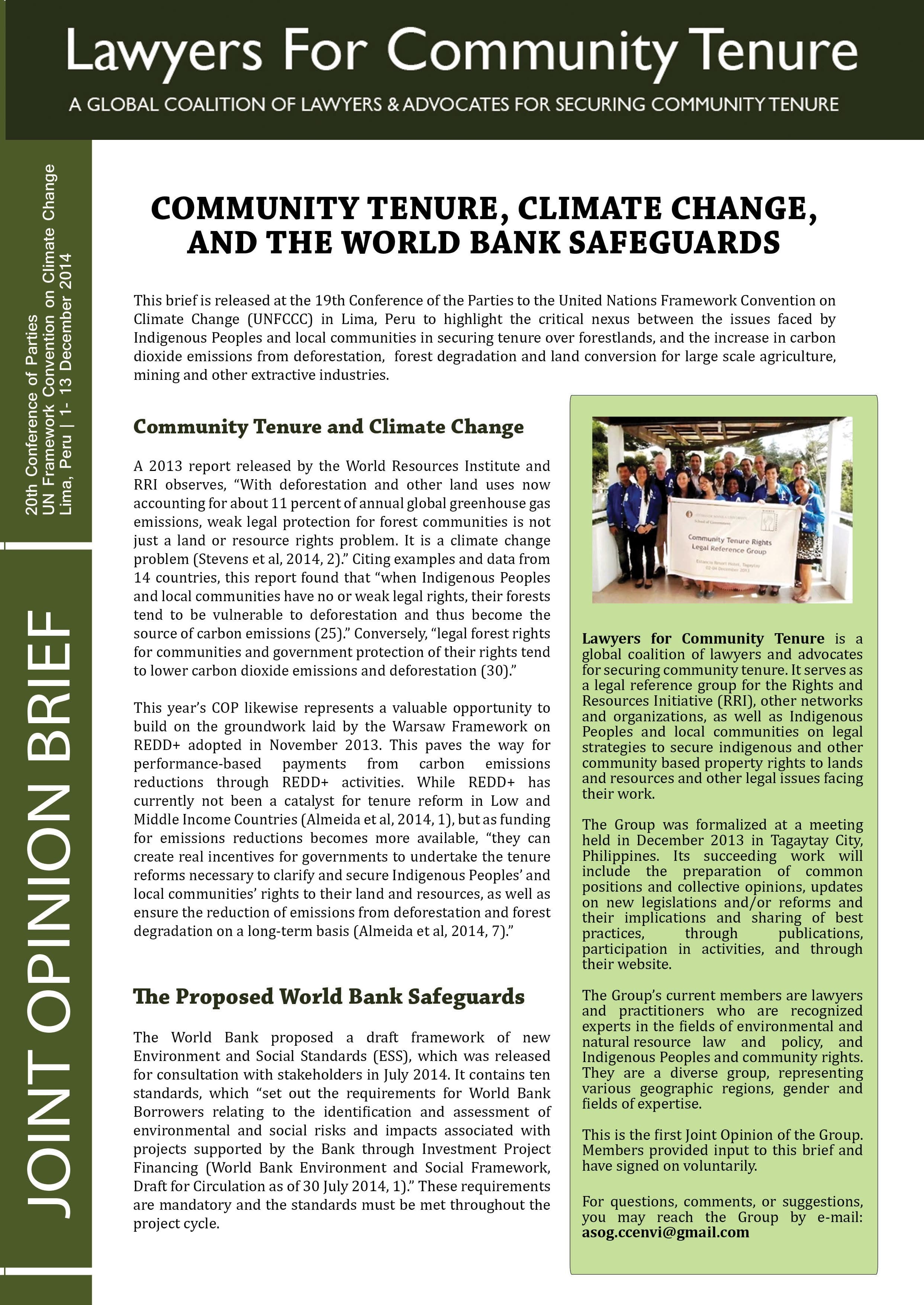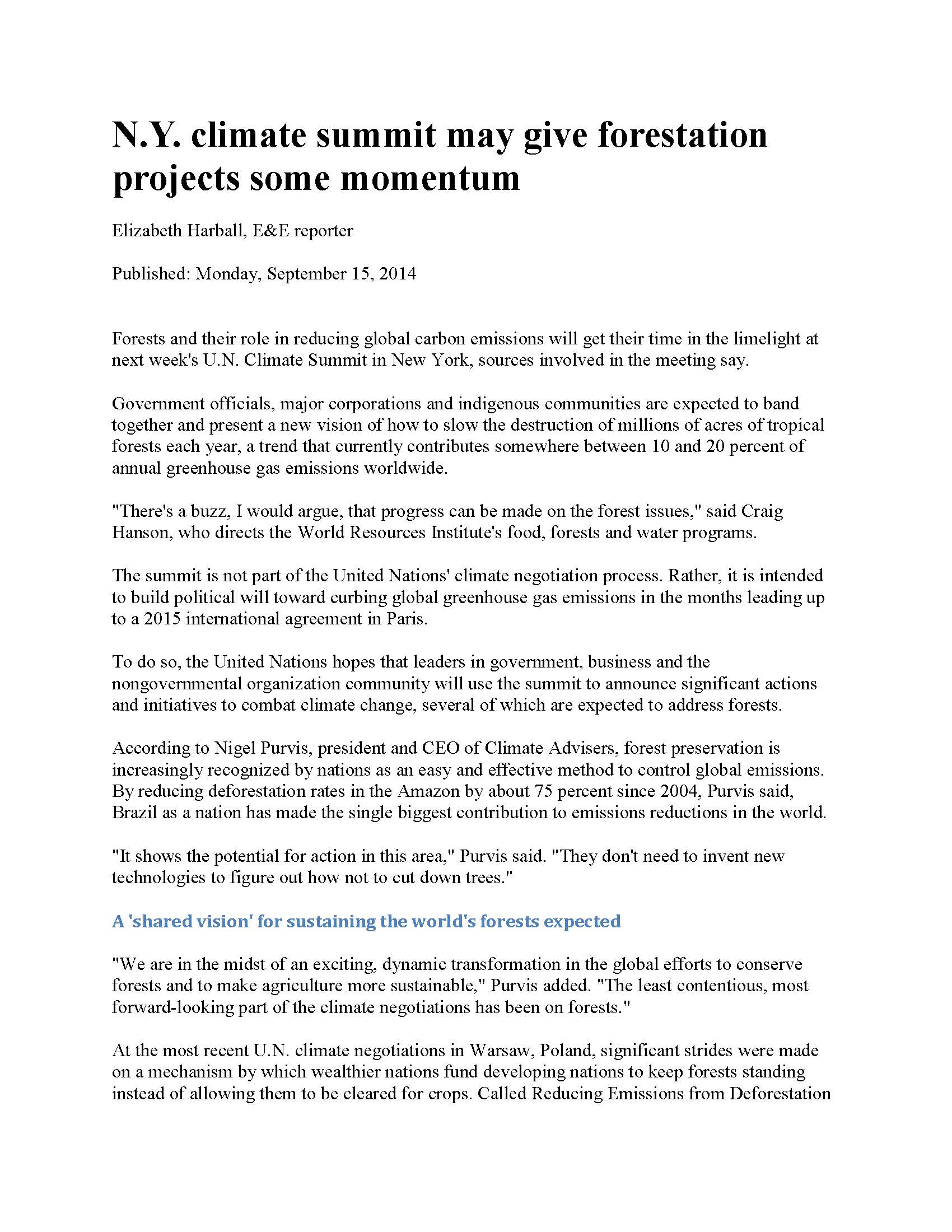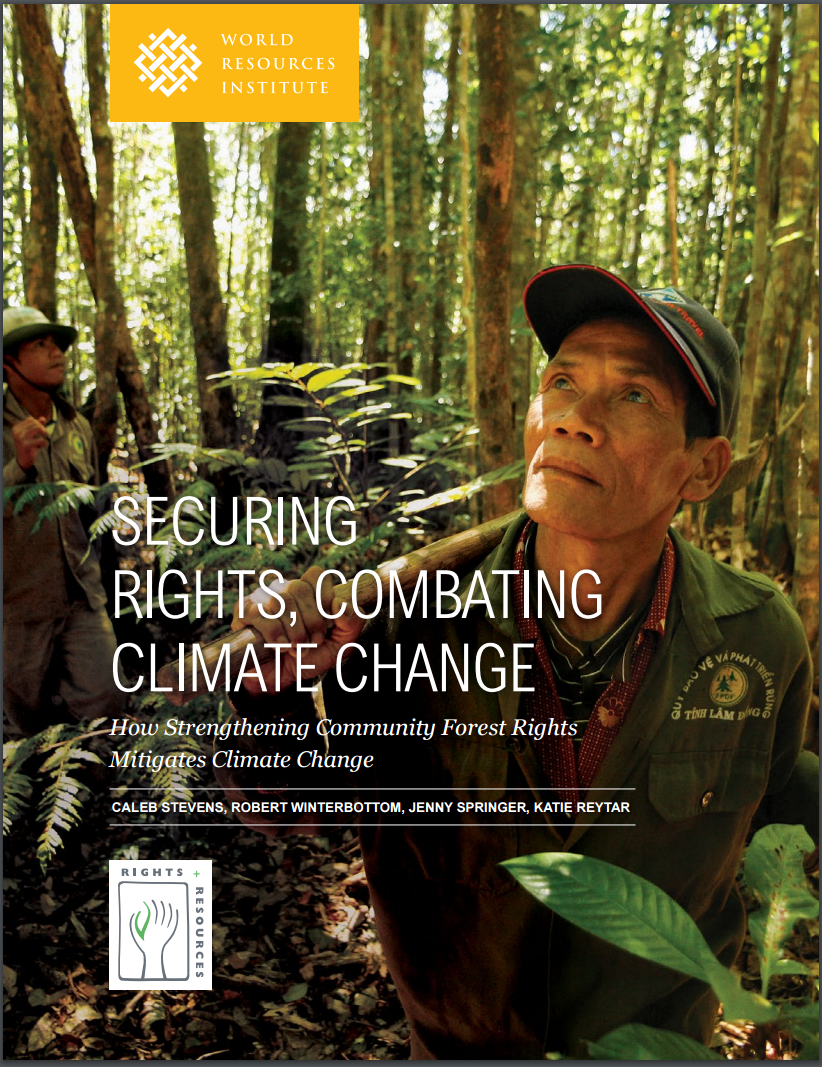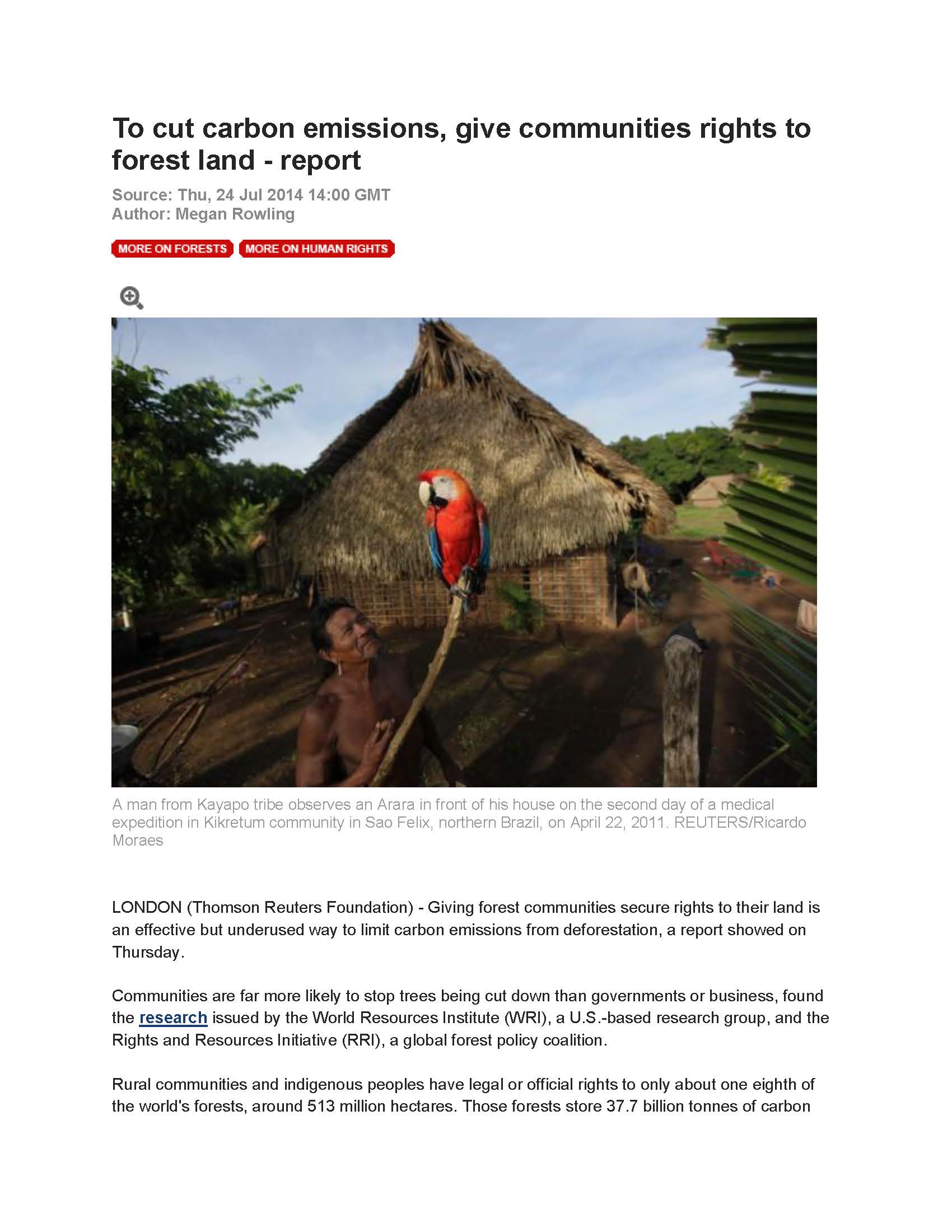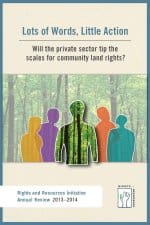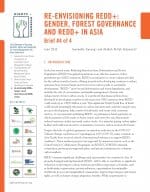This joint-opinion brief is released at the 19th Conference of the Parties to the United Nations Framework Convention on Climate Change (UNFCCC) in Lima, Peru to…
This brief calculates the cost of securing Indigenous Peoples’ and community rights to the tropical forests where they live, noting that secure land tenure is a prerequisite for the success of climate, poverty reduction and ecosystem conservation initiatives.
Forests and their role in reducing global carbon emissions will get their time in the limelight at next week’s U.N. Climate Summit in New York,…
An analysis of the growing body of evidence linking community forest rights with healthier forests and lower carbon dioxide (CO2) emissions from deforestation and forest degradation.
Giving forest communities secure rights to their land is an effective but underused way to limit carbon emissions from deforestation, a report showed on Thursday….
De segunda a sábado, Miguel Ramírez, de 58 anos, acorda às 6h30m e vai para o campo como dezenas de outros moradores de Capulálpam de…
While there were many encouraging pronouncements in 2013—from courts, governments, and some of the world’s largest corporations —unfortunately, progress for community land rights on the ground remains very limited.
This chapter is based on the authors’ recent study for USAID on gender and REDD+ in the Asia region. The study aims at identifying and…

